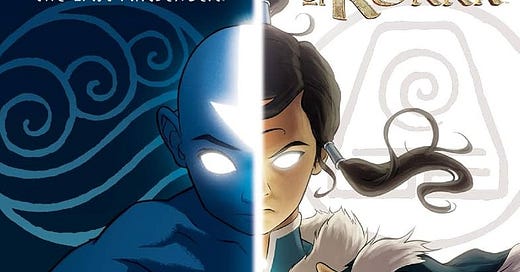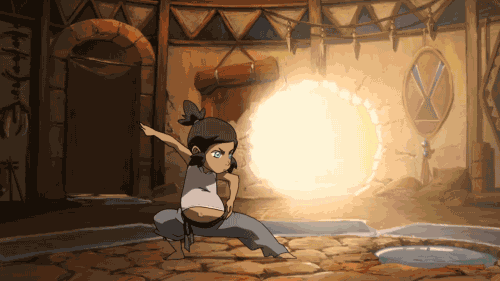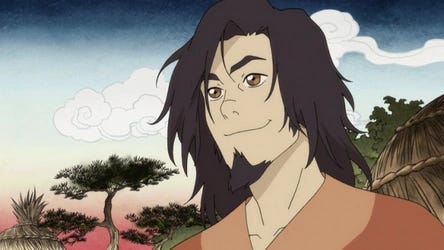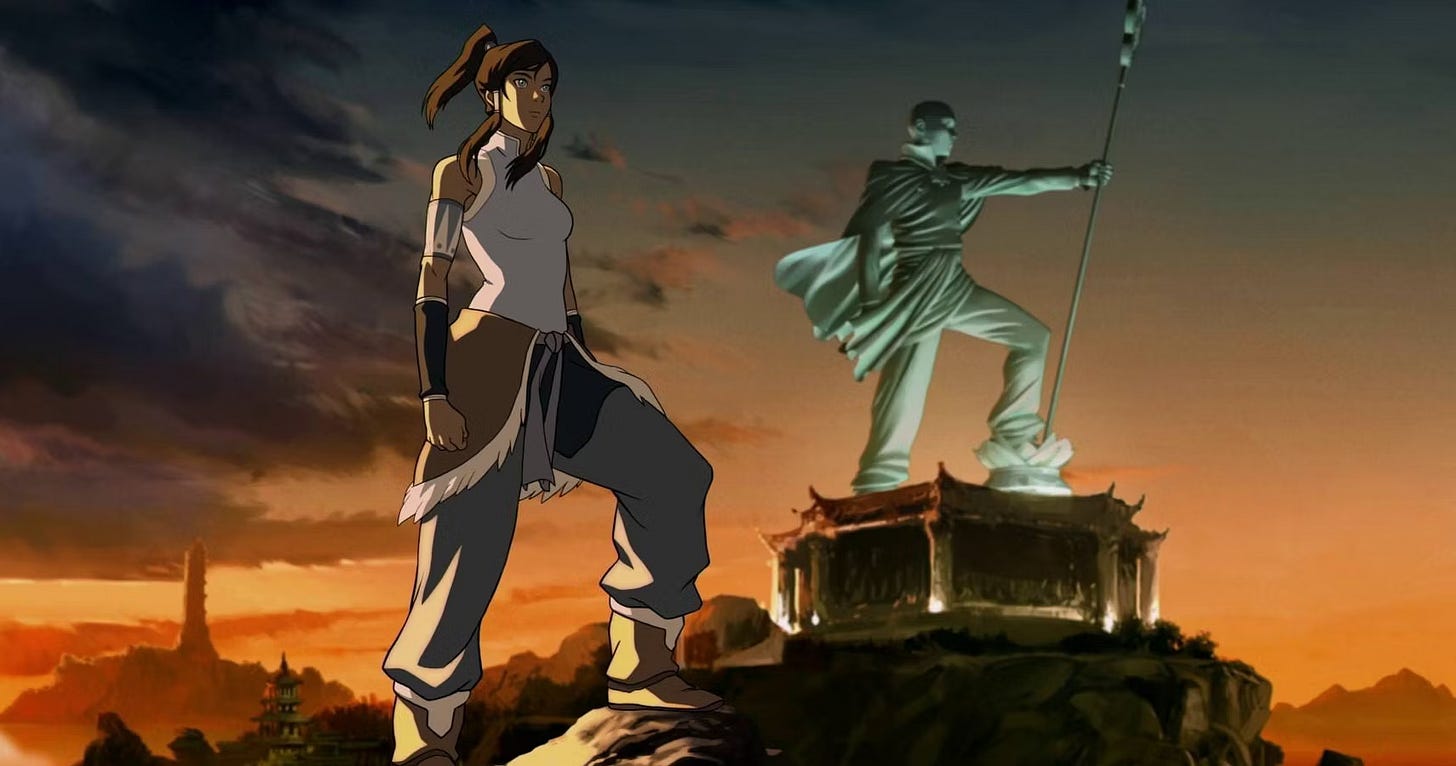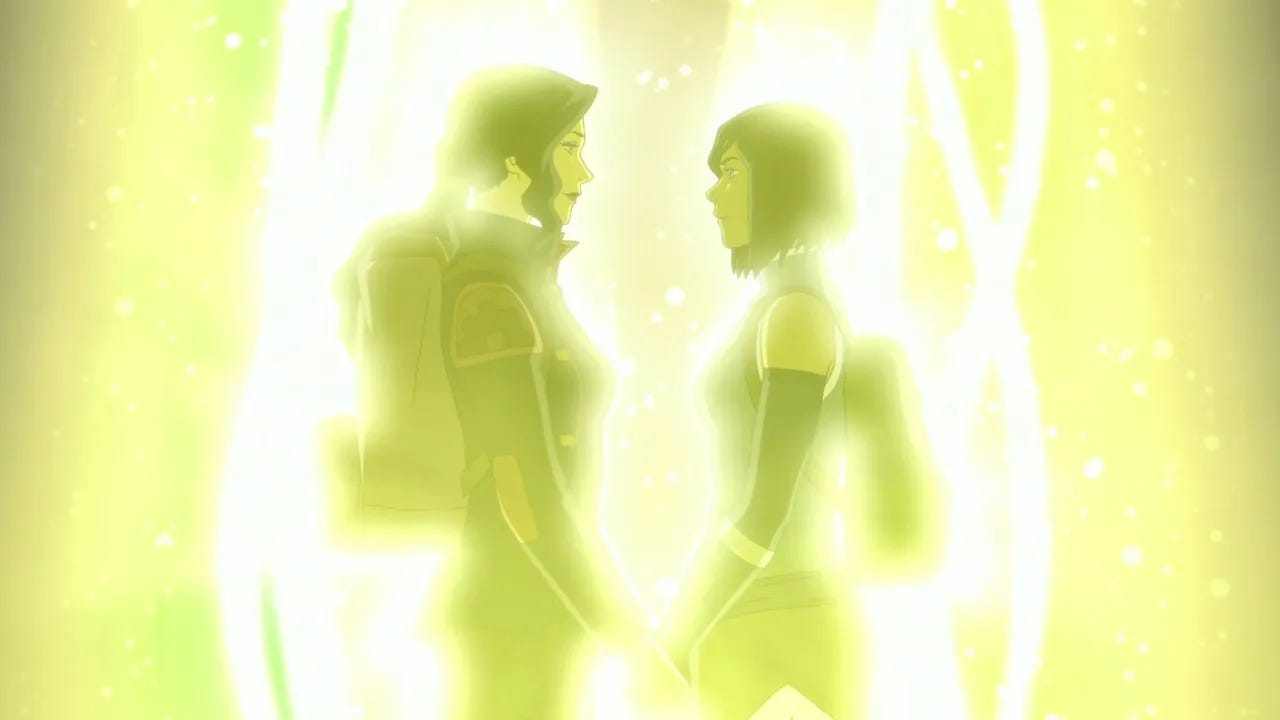Did you know that Avatar: the Last Airbender (ATLA) has a perfect 100% on rotten tomatoes? For anyone who has seen it, this isn’t a surprise. Any ideas what the sequel series, Avatar: The Legend of Korra (LOK) scored? 89%. Not a bad score, but it is down a full letter grade from its predecessor. Not to say that rotten tomatoes is a perfect metric for quality, but that 11% between the two series feels pretty similar to the way that the fandom views the two shows. The first is a masterpiece, and the sequel was pretty good. Well, you saw the title. That judgement doesn’t sit right with me. After recently starting a rewatch of the LOK, I became fixated on the fact that not only is it better than 89%, it’s just as good as ATLA. I’m not saying that both shows are perfect, but I believe that the only thing that holds LOK back is the fervent love of ATLA.
The usual complaints about LOK can be broken down into three schools of thought:
Flaws in LOK
It didn’t live up to ATLA
Sexism
Let’s not waste any time on that third group. If you can’t enjoy a story because the Avatar is a woman, then I’d kindly ask you to rewatch S1E4 of ATLA, and pay close attention to Sokka’s storyline. You must have missed a few things.
One of the more legitimate critiques of LOK is its pacing. The seasons are a bit disjointed, and season one and two moved much faster than ATLA. This isn’t an excuse, but it’s important to remember that LOK was only meant to be a single season. They were renewed for a second, and then for a third and fourth. They couldn’t plan multi-season plots like ATLA could. Again, this isn’t an excuse.
I personally believe the pacing issues are a little overblown, and the merits of the show far exceed the pitfalls that came from the nightmare that is attempting to be creative in this capitalist system. After all, the main conflicts of each season were solved in their respective seasons, but each season was connected to the others by series long world building and character development. I would also add that it’s because of this odd pacing that we ended up with three incredible main villains, and a third that had a lot of potential. (Unalak fell a little short of the mark in the end).
It’s not just the pacing though! LOK completely changed the lore and the world that ATLA so carefully created. At the start of the show, Korra already could bend three elements at the age of four, and it Aang needed three seasons to do that! Then they added in all of this lore about how the Avatar was created, and completely altered the world. For any readers that hold these beliefs, is it that you don’t like LOK, or do you just hate sequels?
The cards were stacked against LOK from the beginning. ATLA has been described by some critics as the greatest animated television series of all time. Some people think that you can remove “animated” from that statement and it’s still true. The creators had to either make something new and risk altering their beloved world, or create something faithful to the original and risk being derivative and unnecessary. It’s clear which option they chose.
Yes, Korra already was able to bend fire, earth, and water, and fans were upset that it sort of invalidated what Aang had to go through. From a narrative perspective, this decision shouldn’t be surprising. If you’re trying to tell a new story, it doesn’t make sense to rely on the same old setup. Did we really want another show built around the Avatar needing learning to bend? By making this change, they were less restrained in the stories they could tell.
Canonically, this makes sense too. We’ve seen how the Avatars are all individually very different from each other. Not only that, but the a new Avatar only comes around when the previous Avatar has died. Even if an Avatar only lives to be thirty, it is unlikely that the new Avatar will have the same training and upbringing. It’s likely that anyone who was around to train the previous Avatar is either dead, or no longer capable of training the Avatar. By having Korra excel where Aang struggled, they were able to tell a different, more complex story.
Now, for the lore. If you flat out don’t like the origins of Wan, the first Avatar, and Raava, the spirit that gives the Avatar their power, I doubt there is anything I can say to change your mind. However, I would challenge you to reflect on those episodes and decide if you dislike the lore that was added because it was poorly written, or because it forced you to humanize the characters from ATLA?
One thing that we should acknowledge is that the writers were able to combine the various aspects that we already knew about the Avatar from ATLA. Namely, that the Avatar is the bridge between the spirit world and the physical world, lion turtles have the ability to alter a person’s bending, and for the most part the spirit world and the physical world exist separately. The story of Wan is complex and inherently tragic, and I believe that offers an important lesson of the infallibility of humans.
It shows us that from the beginning, the Avatar has incredible powers, but they are still human. Wan makes many mistakes. He frees Vaatu from Rava’s control, he unintentionally inspires fighting between humans and spirits, and he dies on a battlefield realizing that he has failed to bring peace to the world. This falls in line with the struggles that Korra goes through trying to live up to the idea of the Avatar. We also see how Aang despite his best efforts made many mistakes. It isn’t intended to be an indictment on Aang, but the viewer is forced to acknowledge the fact that the idea of the Avatar is far more idealized than the person behind the title. If one can remove their need to defend Aang, it becomes apparent that this story not only adds lore, but it makes all of the Avatars more complex characters.
Maybe you don’t have any of these complaints. There is just something intangible that makes ATLA better than LOK. I’d like to reiterate, that I’m not arguing preference, but quality of the shows. However, it’s undeniable that people’s love for ATLA sometimes burns so bright they judge LOK against unrealistic standards. These arguments take on various forms, but they all boil down to the fact that at the end of the day, it just isn’t ATLA.
Nostalgia plays a part in the charm of ATLA, but it isn’t just nostalgia. There is a feeling of comfort in ATLA that is impossible to deny. Uncle Iroh certainly helps with to foster this feeling, but even beyond that, there is often more comfort in a story that has a pronounced difference between good and evil. Not to say that ATLA is just a simple, feel good show. The characters confront genocide, the harsh realities of war, and Zuko goes through one of the best redemption arcs in fiction. While the characters have to struggle to identify what is right and wrong, the audience has no doubt.
The show was created with a younger audience in mind. Aang is mentally 12 years old (technically, he is 112). The coming of age story is more in line with the struggles facing a 12 year old. We see how Aang is forced to grow stronger and wiser to overcome the fire nation. The struggles that face him and his friends are real, and require courage, and a strong moral fortitude. There is still tension. We don’t know if the good guys will win, and the heroes are not always victorious. Even when their resolve wavers, the goal remains the same. It’s nice to exist in a world where things are so black and white.
Then we come to LOK. Korra is 17 when she starts her journey, leaving her protected upbringing to take on the title and responsibility of the Avatar. The struggles that Korra faces as a young adult are inherently different from those faced as a child. Coming into adulthood, and Republic City, we see that the world isn’t black and white at all. That childlike confidence gets challenged as we realize that life exists in the gray. The comfort of certainty has vanished.
The world that Aang and his friends left Korra is not the one that we left in ATLA. Korra, under Aang’s instruction, has been formally trained her whole life to become the Avatar. In many ways, she is the Avatar that Aang wished he could have been. She is strong, and sure of herself. Yet, she soon learns how woefully underprepared she is to face the conflicts in Republic City. She has trained her whole life to become a powerful bender, but she learns that the problems in this modernized society rarely are solved with strength alone.
When Korra fails, we spend more time in the following despair. It’s realistic. Failure as an adult often feels different than it did as a kid. Especially when you feel that you have the life experience to do better. I believe that this distinction is why LOK gets unfairly judged. It doesn’t provide the viewer with the idealized world that we inhabited as kids. But if one can separate the two series, there is a different type of comfort in LOK.
The example that comes to mind is the start of Season 4. Korra is reeling after she was narrowly survived an encounter with the Red Lotus. We see her unable to enter the Avatar state, constantly losing fights, and beginning to question whether she can be the Avatar anymore. She isolates herself, and refuses to face her friends until she can be the Avatar again. That whole plot line hit close to home for me.
It made her rise and redemption that much more meaningful to watch. When we tell these complex stories the resolution is often similarly complex. Korra is only able to succeed by relying on her friends, and realizing that she was the one holding herself back. Don’t get me wrong, I love watching Aang become the Avatar, but there is something special about watching Korra fail, spiral, and then find her way out in the end.
If ATLA is a weighted, electric blanket, LOK is a winter coat. You’d rather be under that blanket, but if you have to venture out into the cold, it’s often better to take the coat.

